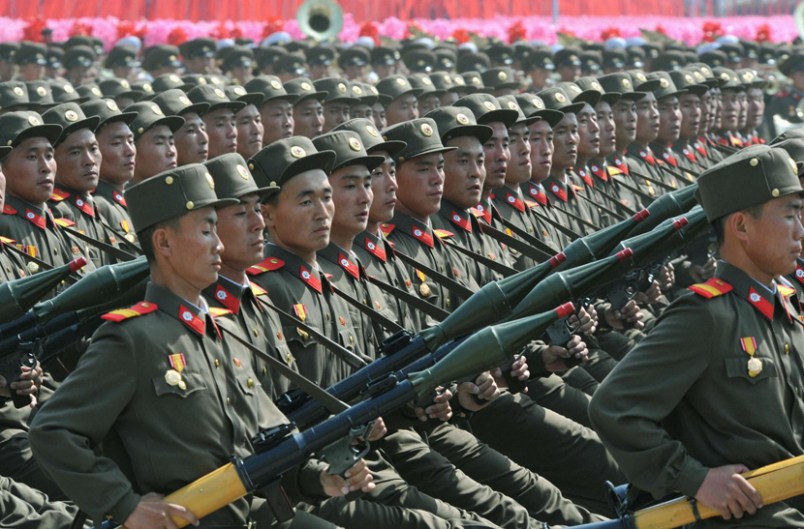WASHINGTON (AP) — An unpredictable North Korea, with its nuclear weapons and missile programs, stands as a serious threat to the United States and East Asia nations, the director of National Intelligence warned Tuesday in a sober assessment of worldwide threats.
Testifying before a Senate panel, James R. Clapper delivered the U.S. intelligence community’s overview of global threats posed by terrorism, cyber, weapons of mass destruction, the months-long civil war in Syria and the unsettled situation in post-Arab Spring nations.
The outlook on North Korea comes as the communist regime announced that it was “completely scrapping” the 1953 armistice that ended the Korean War and has maintained peace on the peninsula for more than half a century. The Obama administration on Monday slapped new sanctions against North Korea’s primary exchange bank and several senior government officials as it expressed concern about the North’s “bellicose rhetoric.”
“The Intelligence community has long assessed that, in Pyongyang’s view, its nuclear capabilities are intended for deterrence, international prestige and coercive diplomacy. We do not know Pyongyang’s nuclear doctrine or employment concepts,” Clapper told the Senate Intelligence Committee. “Although we assess with low confidence that the North would only attempt to use nuclear weapons against U.S. forces or allies to preserve the Kim regime, we do not know what would constitute, from the North’s perspective, crossing that threshold.”
North Korea, led by its young leader Kim Jong Un, has defied the international community in the last three months, testing an intercontinental ballistic missile and a third nuclear bomb.
The report said North Korea has exported ballistic missiles and associated materials to a number of countries, including Iran and Syria. It also displayed what appeared to be a road-mobile intercontinental ballistic missile and put a satellite in orbit with a launch vehicle.
“These programs demonstrate North Korea’s commitment to develop long-range missile technology that could pose a direct threat to the United States, and its efforts to produce and market ballistic missiles raise broader regional and global security concerns,” the report said.
Clapper testified with newly installed CIA Director John Brennan and FBI Director Robert Mueller.
In assessing Iran, the report stated flatly that Tehran is developing nuclear capabilities to enhance its security and influence and “give it the ability to develop a nuclear weapon.” But the report stopped short of saying a decision has been made.
“We do not know if Iran will eventually decide to build nuclear weapons,” the report said.
Clapper explained that in the last year, Iran has made progress in working toward producing weapons-grade uranium. However, the report said Iran “could not divert safeguarded material and produce a weapon-worth of weapons-grade uranium before this activity is discovered.”
The assessment on Iran comes shortly before President Barack Obama’s trip to Israel, where Prime Minister Benjamin Netanyahu has warned that the world has until this summer — at the latest — to keep Tehran from building a bomb. The Israeli leader repeatedly has indicated Israel is willing to strike militarily to stop Iran, a step that would likely drag in the United States.
The report said terrorist threats are in transition with an increasingly decentralized global jihadist movement. The Arab Spring, however, has created a spike in threats to U.S. interests in the region “that likely will endure until political upheaval stabilizes and security forces regain their capabilities.”
Copyright 2013 The Associated Press.










